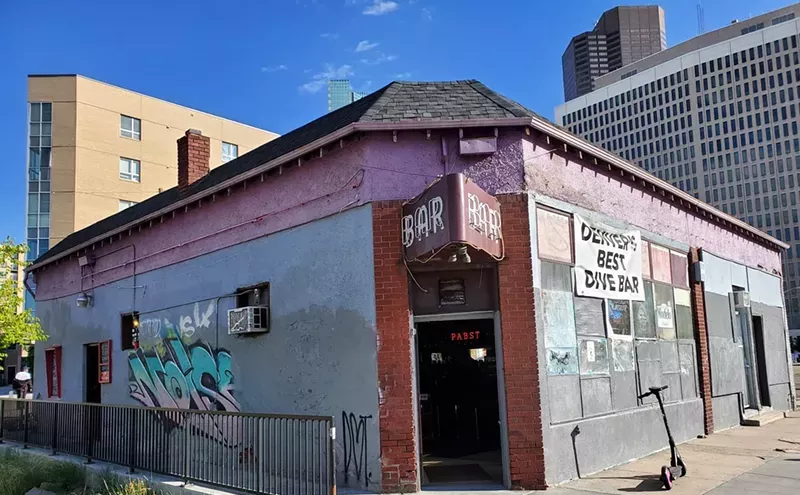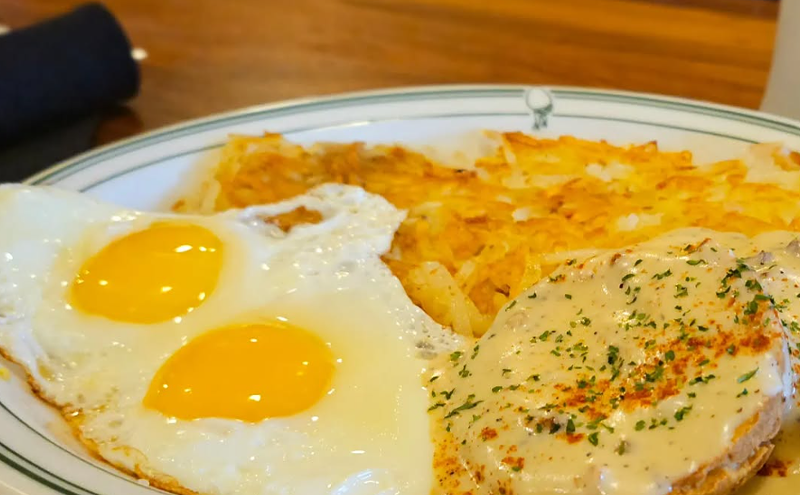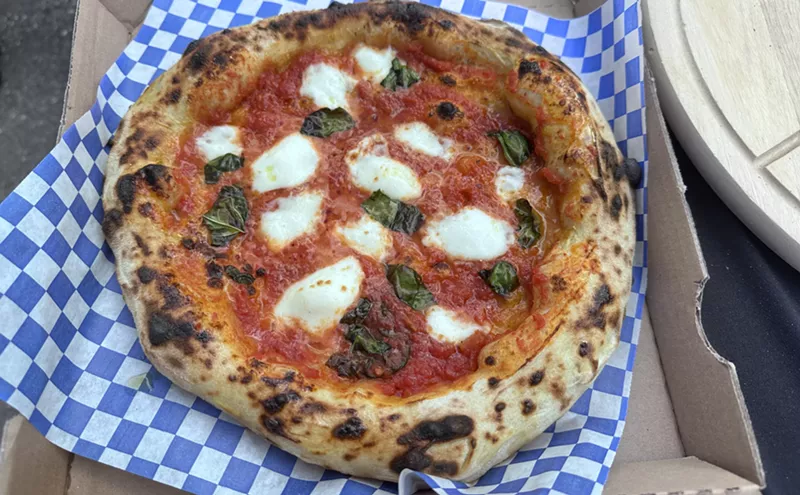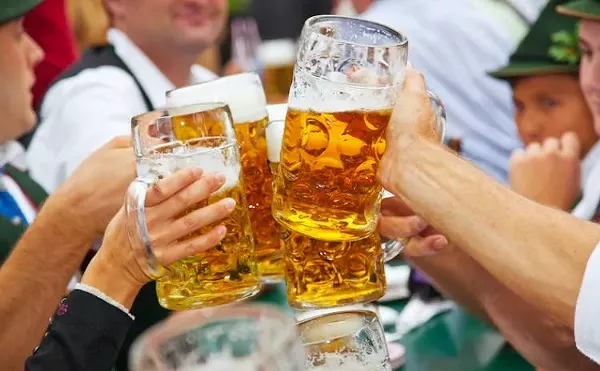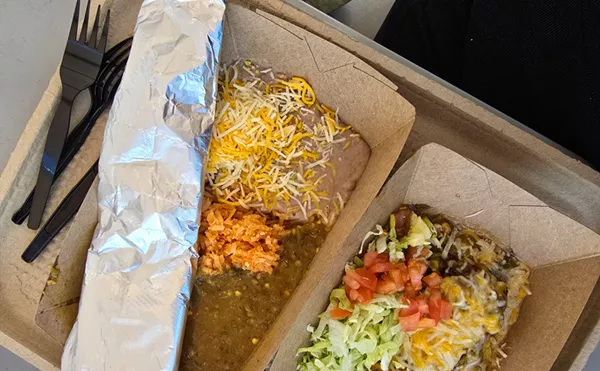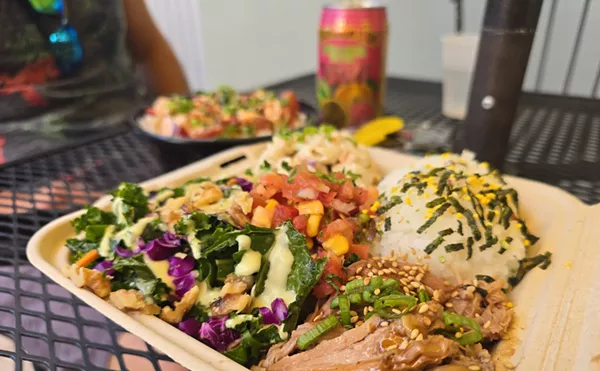In 2004, when I was four years old, my family moved to the United States from Congo Kinshasa in Africa because of a civil war. My father was excited for the opportunities that laid ahead for his two daughters, and he embraced this new country with open arms. While my mother was excited, too, she also worried that living in a new country would somehow erase her and her children's rich and vibrant culture, and that my younger sister and I would forget where we came from.
My dad would take us out to eat everywhere and anywhere, exploring all that American cuisine had to offer. He'd shout, "Red Robin!" and my sister and I would shout back, "Yum!" and hurry to put on our shoes to go eat.
The annual Taste of Colorado festival was my version of Disneyland. We would make our way to each booth as the aroma of funnel cake and other fried foods filled my nostrils. Every time my fathered noted, "We never had food like this back home," my mother would roll her eyes so hard we could practically hear it.
"The food back home is much better," she'd say as she took a bite from a turkey leg the size of my arm.
But there was a place that offered a taste of the food my mother missed so much, and soon, she made it her mission to take my sister and I there as often as possible.
At first, I hated going to Makola African Market. The store, located in a strip mall at 2032 Clinton Street off Montview Boulevard in Aurora, had no Lay's chips, Oreo cookies or the sugary sodas that made me go off the rails for a few hours. Instead, it was stocked with fresh fish, cassava, dried caterpillar and plantain chips. My mother always smiled cheek to cheek at checkout — an expression I first thought was a spiteful smirk. Later, though, I realized that the food took her back to a time in her life before she and my father were running for dear life away from war, before she had lost her mom, and before she was in a new country trying to figure out how to raise her two daughters. It took her back to a time when she was sitting underneath her family's mango trees as her mother taught her about African cuisine.
While my mother was trying to hold on to the food she grew up with, my father was a culinary student at Emily Griffith Technical College where he learned all about American cuisine, bringing home that knowledge to my sister and me. By age nine, I knew how to flip an omelet.
One day, my father came home and told me that we were going to Makola. Taking after my mother, I rolled my eyes. As we walked through the Colorado heat, I asked why we were going, and he said he needed spices. When we got home, my father began making one of my favorite dishes, steak and potatoes, but with the seasoning from Makola. I watched as he rubbed the beef with the spices, and as we began eating, I realized I did not have to choose between loving American and African foods.
My dad would take us out to eat everywhere and anywhere, exploring all that American cuisine had to offer. He'd shout, "Red Robin!" and my sister and I would shout back, "Yum!" and hurry to put on our shoes to go eat.
The annual Taste of Colorado festival was my version of Disneyland. We would make our way to each booth as the aroma of funnel cake and other fried foods filled my nostrils. Every time my fathered noted, "We never had food like this back home," my mother would roll her eyes so hard we could practically hear it.
"The food back home is much better," she'd say as she took a bite from a turkey leg the size of my arm.
But there was a place that offered a taste of the food my mother missed so much, and soon, she made it her mission to take my sister and I there as often as possible.
At first, I hated going to Makola African Market. The store, located in a strip mall at 2032 Clinton Street off Montview Boulevard in Aurora, had no Lay's chips, Oreo cookies or the sugary sodas that made me go off the rails for a few hours. Instead, it was stocked with fresh fish, cassava, dried caterpillar and plantain chips. My mother always smiled cheek to cheek at checkout — an expression I first thought was a spiteful smirk. Later, though, I realized that the food took her back to a time in her life before she and my father were running for dear life away from war, before she had lost her mom, and before she was in a new country trying to figure out how to raise her two daughters. It took her back to a time when she was sitting underneath her family's mango trees as her mother taught her about African cuisine.
While my mother was trying to hold on to the food she grew up with, my father was a culinary student at Emily Griffith Technical College where he learned all about American cuisine, bringing home that knowledge to my sister and me. By age nine, I knew how to flip an omelet.
One day, my father came home and told me that we were going to Makola. Taking after my mother, I rolled my eyes. As we walked through the Colorado heat, I asked why we were going, and he said he needed spices. When we got home, my father began making one of my favorite dishes, steak and potatoes, but with the seasoning from Makola. I watched as he rubbed the beef with the spices, and as we began eating, I realized I did not have to choose between loving American and African foods.
Makola African Market is the backbone for many refugee families living in Colorado, including mine. It was the city's first African market when owner Yaya and her husband opened it in 1996. Over the years, the two started their own family, and Yaya brought her brother, Nana, on board to be the store's manager after he moved to the United States in 2003.
He has seen all kinds of people come in and out of the market over the years. "I am so proud to work at the first African market in Denver," he says, glancing at the construction happening across the street. Located near Stanley Marketplace, the family has seen many changes in the area, and Yaya and her husband worry that the store may have to move sooner than later as rent — and property value — increases. "They give us good money, or else we are not moving," Nana says, laughing.
But I hope Makola stays around — whether in its current location or another — for a long time. It plays an integral role in the lives of African migrants, providing the small comfort of a taste of home in an unfamiliar place filled with obstacles to overcome.



